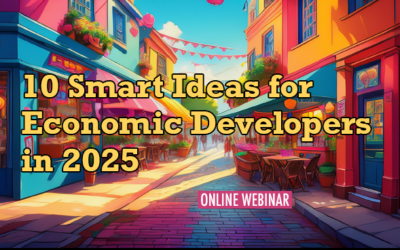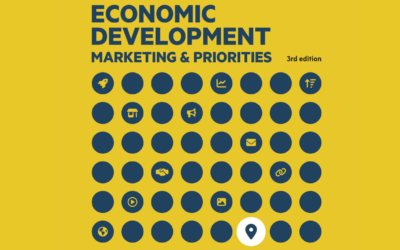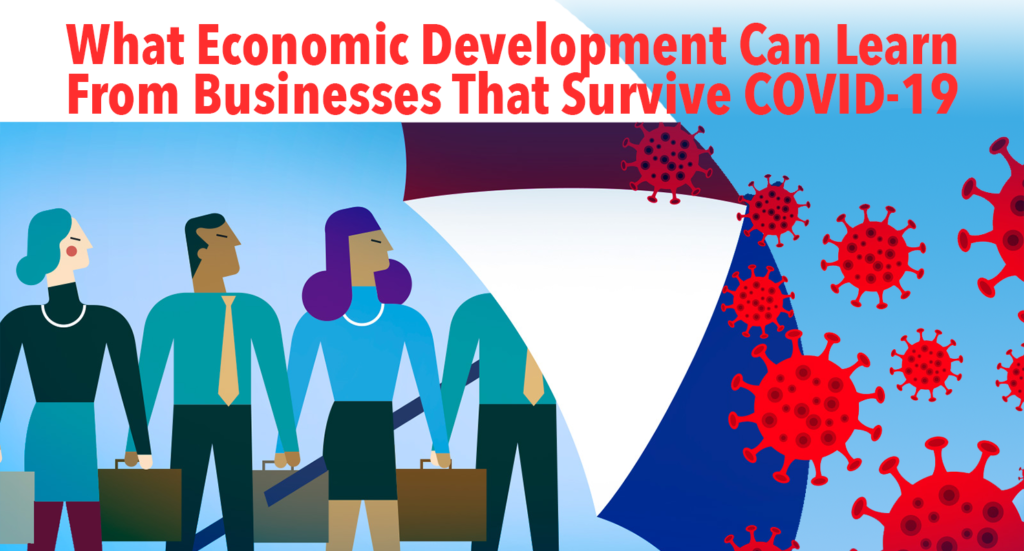
Many businesses will close forever because of the COVID-19 economic crisis. Others will survive and thrive. Economic development organizations are facing similar life or death futures, whether they know it yet or not.
When the coronavirus pandemic arrived, public policy and consumer response resulted in businesses either closing or remaining open under radically different operating conditions. Businesses were faced with an abrupt reality that they would quickly have to either adapt to new circumstances or remain closed, potentially permanently. Businesses that quickly adapted increased their chances of continued existence. These businesses saw the necessity of transformation and embraced it for survival.
The experiences of businesses during the pandemic have changed the owners, managers, and employees in permanent ways because of what they all learned and experimented with when change was the only choice. Here are just a few of their learnings:
- Working from home is a viable way to conduct business. Leading global tech companies are transitioning company policy so employees can continue to work from home forever.
- Supply chain connections are fragile. Companies now realize their businesses can fail if the inputs they need are too far away or are turned off.
- Professionalism doesn’t need to exclude personal realities. It really doesn’t offend people on a video conference meeting with you that your kids walked by in the background or need help with their schoolwork. Whomever you are meeting with was once a kid too.
- Workplaces can be public health danger zones. Essential workers who continued going to work had higher infection rates. People going to work can get you sick. People going to work and getting sick can shut down needed businesses, such as the food processing facilities that keep society fed.
In a post-coronavirus pandemic era, businesses are going to do more remote work, supply chains will have more resiliency including reshoring, professional and personal overlap will occur, and workplaces will be physically transformed. The businesses that are most opportunistic about taking advantage of retaining the good things they learned and the beneficial practices they tried will be more successful. The world’s largest companies are focused on changing their business operations because they know that the coronavirus pandemic has changed the economy, people’s behaviors, and demand permanently.
Economic developers need to learn from these resilient, innovative, and dynamic businesses as a model for the next normal for the economic development profession.
During the coronavirus pandemic economic development organizations (EDOs) were forced to change their practices because the needs and behaviors of their customer constituency changed. This also required policy, program, and cultural changes for the EDO. Some of the changes were the same as other service organizations such as working from home, online communication and web meetings, and using technology for collaboration and basic work tasks. However, EDOs also changed in ways that are specific to the services the profession delivers.
Local Business Assistance
The largest of all the economic development changes is the hyper-focus on assisting local businesses. The economic impact of the coronavirus pandemic revealed itself in a personal and local way. Businesses in your neighborhood, city, and region were closing or at high risk of permanent failure. Your friends and neighbors were getting furloughed, laid off, or losing their jobs because the company they worked for went out of business.
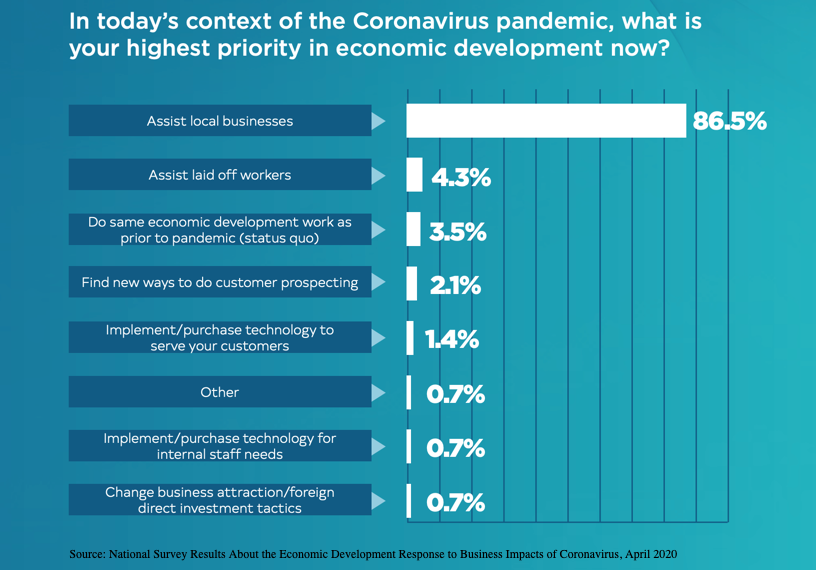
The economic crisis shone a light on the reality that the most important businesses for EDOs are those already in your community because they are the real economy that employs people, generates taxes, and provide the infrastructure for economic health.
Economic developers pivoted whatever they were doing pre-coronavirus to put additional (or all) effort to help local businesses survive. Even regional marketing organizations that previously exclusively performed business recruitment adjusted to meet the next normal for the economic development profession.
The movement to prioritize local businesses is transformational for economic development.
Will the need for local business assistance go away in the future? Absolutely not. Local businesses will be facing challenges for the long-term and their need for assistance from the EDOs serving them will remain.
Communication and Engagement
The rapid pace of change and economic destruction showed just how important it is that EDOs are able to quickly and effectively communicate information with local residents, businesses, and policy makers. While marketing may be a core function of EDOs, crisis communication and community-wide engagement revealed atrophy from muscles economic developers have not used regularly.
Nervous and panicked workers and business owners looked to economic developers for leadership and trusted information in a time filled with confusion and inconsistent messages elsewhere. This experience has revealed to economic developers just how much their voice is needed by their constituents and the value it creates.
It also highlighted the infrastructure communication weaknesses within EDOs that were not able to do this effectively. Many EDOs lack access to complete databases of businesses in their area with contact information and do not manage their data in a CRM. Both of these are deficiencies that EDOs will need to fix to be prepared for future communication.
Multi-Organization Collaboration
Businesses that were overwhelmed with the multiple and massive impacts of their business closing, customers disappearing, and employees becoming ill could not solve their problems by themselves. To mitigate their challenges required negotiating rent with landlords so both could stay in business, financial disaster assistance was taken from local and federal governmental agencies, and banks were engaged for expanded lines of credit, to name just a few of the multiple organizations they needed to collaborate to continue their business.
Similarly, problems of the magnitude of a global health pandemic, a national economic crisis, or a natural disaster result in impacts which cannot be solved by EDOs by themselves. Economic development professionals realized this during the COVID-19 crisis, which is why 46% of economic developers changed to multi-disciplinary collaboration with other professions or economy-related fields including public health, city planning, workforce development, banking, and social services.
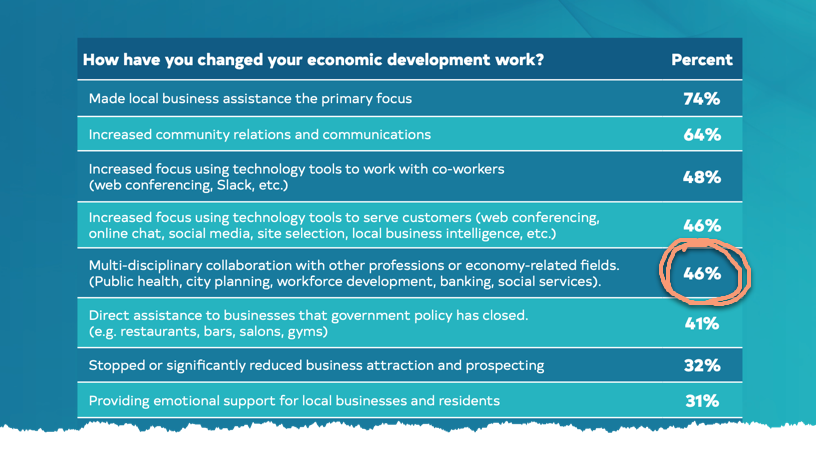
The professional relationships that economic developers created during this pandemic can sustain long after it is over. Also, EDOs learned lessons about how their collaborative work with other agencies benefited their economic development mission.
Supply Chain
Local businesses that provide products and services to local residents and export outside of their region were painfully impacted if they relied on a global supply chain with fragile linkages. Businesses now realize that their process of sourcing the lowest cost goods with just-in-time delivery both increased profits and risk from disruption. The cost-benefit experience of a stoppage of supplies will tip many businesses to rethink their supply chain to more local sourcing, which is more resilient to disruption.
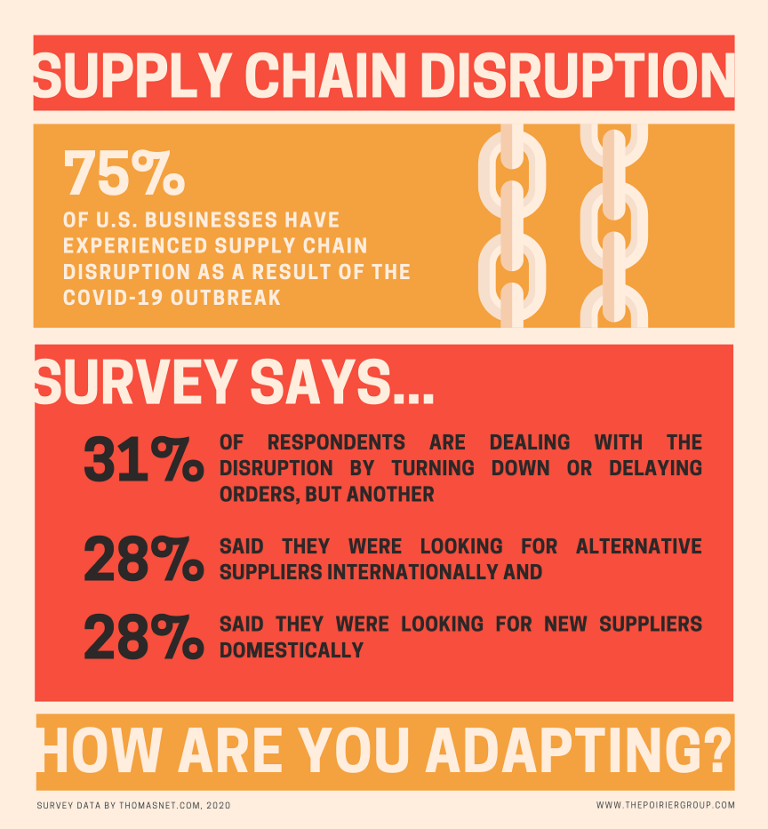
Similar to these businesses, economic development organizations that relied on economic growth from a global supply chain of foreign direct investment or interstate business attraction have realized how fragile their pipeline of business became. As a result, EDOs are shifting their focus toward helping their local businesses which they can more easily engage with, even with physical distancing in place. EDOs recognize that there is economic opportunity bringing their local businesses’ suppliers closer to them, which can result in supplier investment locally.
To better understand local supply chains will require deeper engagement with local businesses to discover where their supplies come from and to use online databases that track supply chains. With this information EDOs can then execute strategies to bring suppliers into their communities.
Job Creation No Longer Needs Business Attraction
The old way of thinking about job creation in economic development was that it came from 1. business expansion, 2. entrepreneurs opening new businesses, and 3. business attraction. Most net new job creation comes from local businesses. However, EDOs have spent significant operational efforts on business attraction based on an underlying belief that creating new jobs requires the attraction of a business into a physical location in a community.
Because of the coronavirus pandemic many businesses have learned that they do not need to expand with new facilities to grow their businesses or hire new employees. Instead, companies see the opportunity to hire remote workers anywhere in the world to grow their workforce. This is a significant new opportunity for EDOs located in tier-2 metros, exurban, and rural areas that want to create new and higher paying jobs for local residents, if these EDOs change their operations away from business attraction and toward job creation.
This may also have the benefit of being incredibly popular politically because, instead of EDOs attracting new companies that will hire out-of-town employees moving to the area to get these new jobs, a focus on job creation for existing residents benefits the people living in the area already.
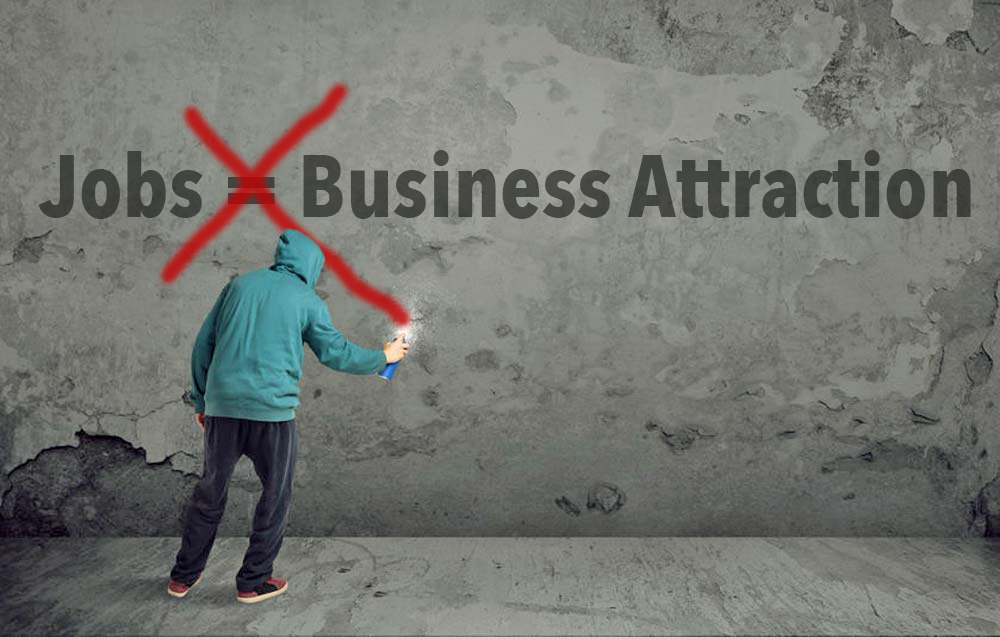
Technology
The increase in online technology use has occurred with everyone from grandparents who want to Facetime with grandkids they can’t visit to professionals using Zoom meetings to close multi-million-dollar business deals. The increased change in reliance on technology to support economic development activities is noteworthy. The use of technology to work with economic development co-workers and to serve customers were the third and fourth highest ranked changes in professional practices.
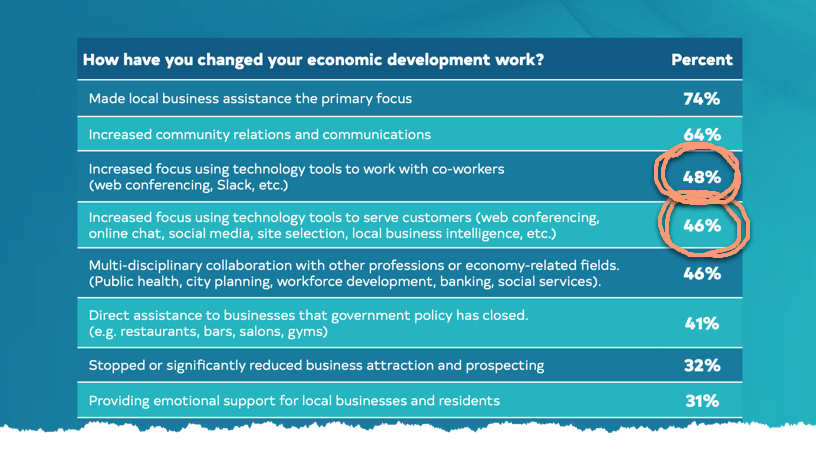
Trying and learning how new technology works are barriers to the adoption of technology. Yet, the coronavirus pandemic forced economic development professionals into using new software because it was required to get their job done. Video conferencing, online collaboration, and organization of work through CRM management are habits that have shown their value, and which will continue to be used in an ongoing way.
Luddites may make the same argument that has been made many times before, which is that no communication is better than face-to-face communication. Yet most professionals perform a huge amount of work using the technology tools that past generations have said could not replace face-to-face communication such as mail, telephone, fax, email, and video conferencing. All of these technologies are not face-to-face but have their own advantages over face-to-face communication.
Zoom became a big-name tech service of the mass market for video conferencing that grew quickly as a result of the coronavirus pandemic. Within the economic development profession SizeUp software also had an explosion of growth.
Online services provided by EDOs on their websites delivered positive results in challenging circumstances as a means of effectively providing vital services, communicating information, and delivering data that new, existing, and prospective businesses in the community needed. Technology is a growth practice for all modern organizations. Online services will be a foundational piece of economic development into the future. https://www.linkedin.com/embeds/publishingEmbed.html?articleId=8966978472878772743
There Will be Economic Development Traditionalists
There are many reasons that people instinctively resist change. But we are not lizard brain economic developers; what saved us in the stone age will get us killed in the information age. Businesses that have been unable to adapt to the changes in the economy have been put out of business or become marginal. Just look at Kodak, Dell, Sears, Yahoo, Borders, and Blockbuster. Now we are seeing businesses die that are unable to adapt to a world in which invisible viruses create colossal economic damage.
No one wants to be the Blockbuster video rental EDO in a time of streaming media EDOs.
However, there will be economic developers at the highest levels of today’s EDOs who defiantly say that change is not coming.
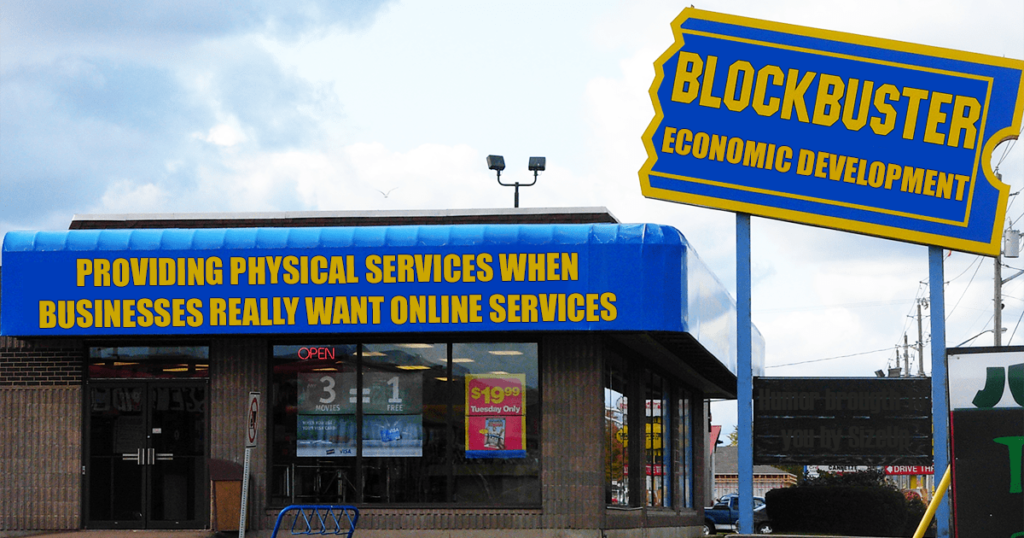
There will certainly be EDOs led by directors that will fight with all of their might to get back to doing business the exact way they did it before to serve an economy that no longer exists. However, the new economy that will emerge from a post-coronavirus experience will be different and have new needs from economic developers.
The economic development leaders that will keep their jobs (and the new generation of leaders that will emerge to take executive jobs) and the EDOs that will remain operationally viable are the ones that will adapt and evolve to remain relevant to the new needs of local businesses and residents of their communities. The traditionalist EDOs will survive for a short while, just as old titans of industry survive while crumbling into ruin. But the innovative EDOs will emerge and transform themselves to be stronger, more valuable, and more needed than ever before.
Please share this article using the section below so more people will know about this information.


